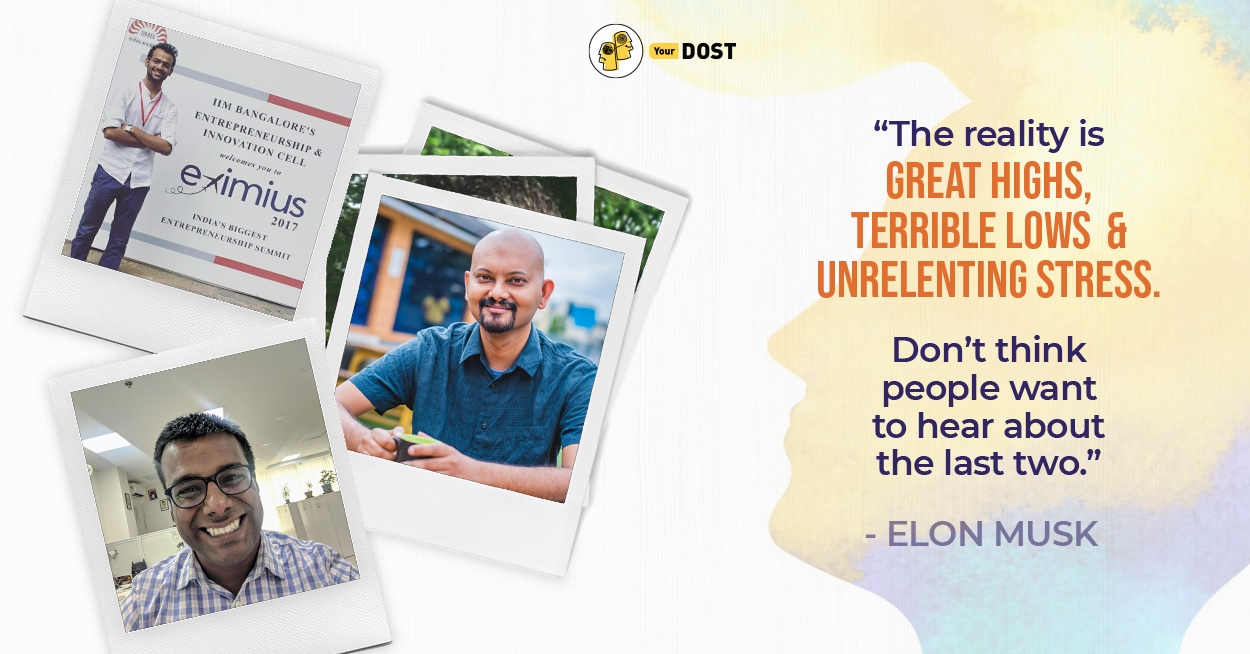As humans, we are always trying to make sense of our world. We are all, as personality theorist George Kelly pointed out, “armchair psychologists”! Not only are we prone to cooking up our own reasonable-sounding explanations for human behavior, we are now in an age of information overload. There are a multitude of information sources rife with misinformation as much as information. These can not only lead us to make erroneous assumptions about human nature, but also affect our day to day decision-making.
Let us evaluate some such “common sense” claims scientifically and distinguish facts from fiction.
1.Fiction – Some people are left brained, and some are right brained.
There is a popular misconception that logical and analytical people are left-brain dominant, while the creative and intuitive are right-brain dominant. Although the left and right brain do have preferred activities they undertake, it does not mean our general personality is also right or left brain-dominant.
Fact – Both sides of the brain are intimately inter-connected.
For example, the entire brain needs to be employed for a simple activity of story-telling, which is a combination of creative thinking as well as language abilities. All parts of the brain interact and work seamlessly to create the experience we call ‘consciousness’.
2. Fiction – Specific emotional conflicts or stress leads to ulcers.
Following Freud, many psychoanalysts believed that ulcers are linked to the infantile psychological cravings to be fed and to be dependent, which get rekindled in adulthood and cause gastrointestinal upset. When this theory got discredited, it was replaced by the general belief that stress and lifestyle cause ulcers
Fact – Stress, emotions and disease-forming organisms together create ulcer forming conditions in the body.
Studies confirm that the biopsychosocial stress does play an indirect role in ulcer formation, as well as resistance towards ulcer treatment. However, studies are now confirming that disease forming organisms like H.pylori infection could also be a contributing factor in stomach ulcers. Ulcers are being treated with antibiotics as readily as any other disease.
3. Fiction – Opposites attract!
This may be true in the initial stages of attraction – a difference in personality may lead to excitement and interest. We may also get attracted to a person who represents our ideal self, the kind of person we would ‘like to be’. A few differences even spice up relationships and some people may be in favor in such adventure. But in intimate long term relationships, research says this is not the general norm.
Fact – Subconsciously, we look for mates more similar to us than dissimilar
Dozens of studies have found out that for the long haul, people normally seek mates who have similar values, beliefs, attitude, lifestyles, habits, hobbies and family backgrounds. As per studies, similarity of personality predicts marital happiness and stability.
4. Fiction – Vent your anger instead of holding it in to reduce stress.
Punch inanimate objects, scream in pillows, hit the gym and pound the punching bag, play video games; these are part of mainstream advice to ‘let off steam’ or vent out anger. Venting out feels good, no doubt, but does this really stave off aggression, or does it fan the flame?
Fact – “People who are most prone to give vent to their rage get angrier, not less angry”
Anger tends to naturally subside after some time, and people who try anger ‘purging’ techniques get the false impression that the venting out did it! Psychologists now say it is better to let the heat simmer down. Distract yourself with something totally unrelated, and when calm, use critical thinking and problem-solving approach to deal with the issue making you angry.
Busting a few more myths –
5. Fiction – “Brainstorming” new ideas in groups works better than asking people to generate ideas on their own.
Fact – Most studies show that the quality of ideas generated in brainstorming sessions is poorer than that of ideas generated by individuals.
6. Fiction – The best way to change someone’s attitude is to give him or her a large reward to do so.
Fact – Research on “cognitive dissonance” theory demonstrates the best way to change someone’s attitude is to give him or her the smallest reward possible needed to do so.
7. Fiction – Playing “hard to get” is a good way of getting someone interested in you romantically.
Fact – Research suggests that are men are less interested in women who are “standoffish” than women who are receptive to their advances.
8. Fiction – Rote memorization is the best way to retain information.
Fact – Information processed by its meaning is better retained than information that is merely repeated over and over again.
9. Fiction – Creative breakthroughs occur in sudden bursts of insight.
Fact – Brain imaging studies reveal that well before people suddenly report a creative answer to a problem, brain areas involved in problem-solving, such as the frontal lobes, have already been active.
10. Fiction – Sleeping pills are a good long-term treatment for insomnia.
Fact – Prolonged use of sleeping pills often causes rebound insomnia.
11. Fiction – People who are prone to good moods tend to have fewer bad moods than other people.
Fact – The tendency toward positive moods (positive ) is largely or entirely independent of the tendency toward negative moods (negative emotionality).
Although no scientific research is foolproof, it is our best safeguard against human error. We should always question what we believe. Accepting something on face value just because it sounds common-sensical or has been popularized by media, can be dangerous information affecting our lives in crucial ways.
Reference: “50 great myths of popular psychology – Shattering widespread misconceptions about human behavior



